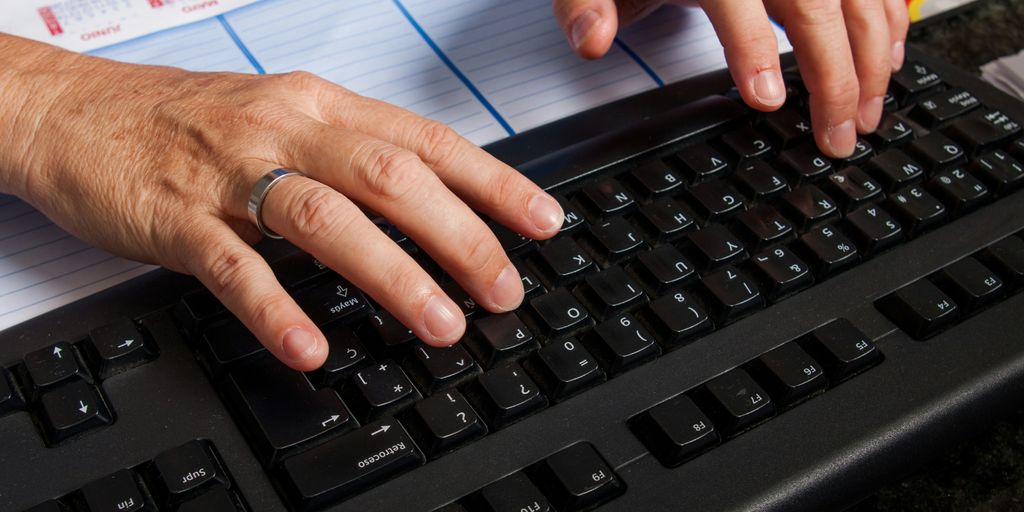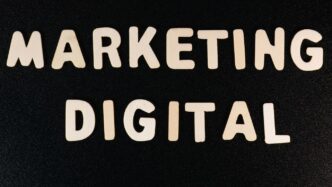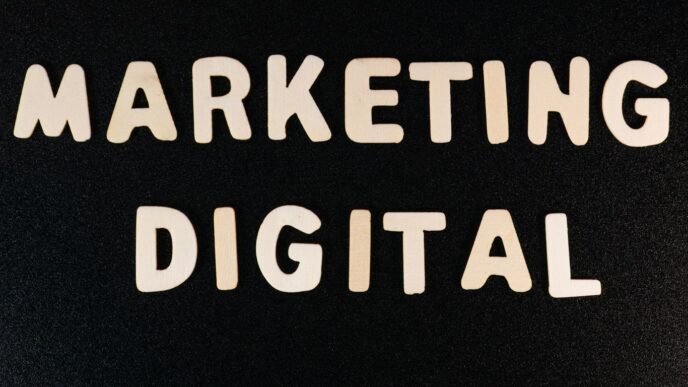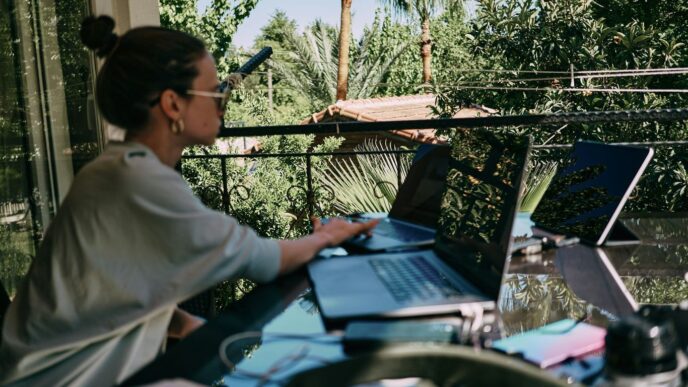So, you got that job offer email, huh? That’s awesome! It’s a big step, and how you answer it really matters. It’s not just about saying ‘yes’; it’s about making a good first impression and showing you’re ready to jump in. This guide will walk you through how to respond to a job offer email the right way, making sure you start your new role on a strong note.
Key Takeaways
- Always say thanks right away for the job offer. It’s polite and shows you appreciate it.
- Be super clear that you’re taking the job. No one should have to guess.
- Quickly mention the main points of the offer, like your job title and when you start, just to make sure everyone’s on the same page.
- Make your email a bit personal. Show you’re excited about working for that specific company, not just any company.
- Before you hit send, check everything. Make sure all your info is correct and any documents they asked for are attached.
Crafting an Impactful Job Acceptance Email: A Comprehensive Guide
So, you got the offer! Awesome. Now comes the part where you actually, you know, accept it. Sending a well-written job acceptance email isn’t just a formality; it’s your first impression as an employee. Let’s make it a good one.
Express Genuine Gratitude
Seriously, say thank you. Don’t just jump into the details. Acknowledge that they picked you. Something like, "Thank you so much for offering me the position of Junior Widget Designer. I really appreciate you and the team taking the time to interview me." It’s simple, but it shows you’re not just entitled. It shows genuine interest in the role.
Promptness Matters
Don’t leave them hanging. I mean, you don’t have to reply instantly, but within 24-48 hours is a good rule of thumb. It shows you’re on the ball and excited. If you need more time to consider, let them know why and when you’ll have an answer. No one likes to be kept waiting. Employers appreciate candidates who are decisive and proactive.
Reiterate Key Details
Just to be super clear, restate the job title and start date. This avoids any confusion down the line. For example: "I am happy to accept the position of Junior Widget Designer, with a start date of July 15, 2025."
Key Elements of a Job Acceptance Email: Unveiling the Building Blocks

Okay, so you got the offer! Awesome. Now comes the part where you actually, you know, accept it. It’s not just about saying "yes"; it’s about setting the stage for a good start. Think of it as your first impression, part two. You want to make sure you hit all the right notes. Let’s break down the key things you gotta include.
Clarity in Confirmation
Make sure you’re crystal clear about what you’re accepting. No one wants confusion later. I mean, imagine showing up on the wrong day or expecting a different salary. Awkward! So, spell it out. Here’s a quick rundown of what to include:
- Job Title: Exactly what position are you accepting?
- Start Date: When do you actually start working?
- Salary: What’s the agreed-upon compensation?
- Benefits: Briefly mention you acknowledge the benefits package.
Enthusiastic Acknowledgment
Don’t be a robot! Show some excitement! I know, maybe you’re not thrilled about every single aspect of the job, but at least pretend. A little enthusiasm goes a long way. It makes you seem like you actually want to be there. Something like, "I’m really excited to join the team and contribute to [company project]!" goes a long way. It’s like saying you’re eager to learn and grow. Plus, it’s just good manners. Think of it as adding a little personal touch to your message.
Professionalism in Tone
Even though you’re showing excitement, keep it professional. This isn’t a text to your best friend. Use proper grammar, avoid slang, and double-check for typos. A professional tone shows you’re serious about the job and respect the company. It’s about finding that balance between being friendly and being, well, an adult. Remember, this acceptance email is a formal communication, so treat it that way.
How to Accept a Job Offer via Email
So, you got the offer! Congrats! Now comes the part where you need to, you know, actually accept it. Sending a well-crafted email is key. It’s not just about saying "yes"; it’s about confirming details and setting a professional tone from the get-go. Let’s break down how to do it right.
Begin with Gratitude
First things first: show some appreciation. Don’t just jump into the acceptance. A simple "Thank you so much for offering me the position of [Job Title] at [Company Name]" goes a long way. It shows you’re not just entitled, but genuinely thankful for the opportunity. It’s like saying thanks when someone holds the door open – just good manners. It sets a positive tone for your future relationship with the company. You can also mention something specific that you appreciated about the interview process or the company culture. This shows you were paying attention and are truly excited about joining the team. Remember, first impressions matter, even in an acceptance email.
Clearly State Acceptance
Make it crystal clear that you are accepting the job offer. Don’t beat around the bush or leave any room for ambiguity. A straightforward "I am pleased to accept the position of [Job Title]" is perfect. You don’t want them wondering if you’re still on the fence. This is especially important if you’ve had multiple conversations or negotiations. A clear statement of acceptance solidifies your commitment and allows the hiring manager to move forward with the onboarding process. It also prevents any potential misunderstandings down the line. So, be direct and to the point – no need to overcomplicate things.
Summarize Key Terms
This is where you confirm the important stuff: salary, start date, benefits, etc. Briefly reiterate these details to ensure everyone is on the same page. For example: "As discussed, my starting salary will be [Salary] with a start date of [Start Date], and I understand I’ll be eligible for the benefits package outlined in the offer letter." This shows you’ve read the offer carefully and are proactive in confirming the details. It also gives the company a chance to correct any misunderstandings before you officially start. Think of it as a final check to avoid any surprises later on. Plus, it demonstrates your attention to detail, which is always a good thing. Speaking of good things, make sure you are up to date with the latest email marketing trends to improve your communication skills.
Refining Your Acceptance Message
So, you’re ready to hit ‘send’ on that acceptance email? Awesome! But before you do, let’s make sure it’s not just good, but great. It’s about adding those little touches that show you’re really thinking about this job and the company. It’s like adding a secret ingredient to your favorite recipe – it just makes everything better.
Personalize Your Message
Don’t just send a generic "I accept" email. Mention something specific that resonated with you during the interview process or about the company itself. Did you connect with the interviewer over a shared interest? Did something they said about the company’s future plans excite you? Throw it in there! It shows you were paying attention and are genuinely interested. It’s a small thing, but it makes a big difference. For example, you could mention how excited you are about the company’s commitment to continuous communication.
Clarify Any Conditions
Okay, this is important. If you have any conditions to your acceptance – maybe you need a specific start date, or you want to clarify something about the benefits package – now’s the time to do it. Don’t be afraid to ask! It’s way better to get everything sorted out now than to have surprises later. Just be polite and professional about it. Something like, "I’m very happy to accept the position. To ensure a smooth transition, I wanted to clarify the details regarding the job acceptance email process."
Express Willingness to Learn
Show them you’re not just there to collect a paycheck. Express your eagerness to learn and grow within the company. Mention that you’re excited about the opportunity to develop new skills and contribute to the team’s success. Companies love to hear that! It shows you’re invested in your future with them. Here are some ways to show your enthusiasm:
- Mention specific skills you’re hoping to develop.
- Express interest in any training programs they offer.
- Highlight your willingness to take on new challenges.
Finalizing Your Professional Response
Acknowledge Company Culture
Showing you understand the company’s vibe is a smart move. It’s not just about saying ‘yes’; it’s about showing you get them. Think about mentioning something specific you learned about their culture during the interview process. Maybe they emphasized teamwork, innovation, or customer focus. Referencing this shows you’ve been paying attention and that you see yourself fitting in. It’s a subtle way to reinforce that you’re not just looking for any job, but this job.
Double-Check Attachments
Okay, this sounds obvious, but seriously, double-check! If they asked for any documents – signed offer letters, maybe some forms – make absolutely sure they’re attached. And not just attached, but the right versions. Imagine sending a draft instead of the final signed agreement. Awkward! It’s a small thing, but it speaks volumes about your attention to detail. It’s worth the extra 30 seconds to avoid a potential headache. Make sure you have the signed agreements ready to go.
Optimistic Closing
End on a high note! Reiterate your excitement about joining the team and your eagerness to get started. A simple, "I’m really looking forward to contributing to [Company Name] and working with the team" goes a long way. It leaves a positive final impression and sets the tone for your future interactions. It’s like the handshake at the end of a meeting – it seals the deal and leaves everyone feeling good. Don’t underestimate the power of a positive closing.
Enhancing Your Professional Image

Express Team Collaboration
It’s a great idea to show you’re a team player right from the start. Mention how excited you are to work with the team and contribute to collaborative projects. This shows you value teamwork and are ready to jump in and work with others. It’s a simple way to make a good impression.
Reassure on Confidentiality
Companies really value discretion, so it can be helpful to include a line about how you’ll handle sensitive information. It doesn’t need to be long, just a quick sentence saying you understand the importance of confidentiality and will maintain it. This can build trust early on. You can also mention your understanding of the company’s data protection policies.
Positive Closing Remarks
End your email on a high note! Reiterate your enthusiasm and express your eagerness to start. A simple, "I’m really looking forward to joining the team and contributing to [company name]’s success" can go a long way. It leaves them with a good feeling and reinforces your excitement. It’s all about ending on a positive and forward-looking note. You can also mention how you are looking forward to candidate assessments and how they can help you grow in the company.
Wrapping It Up: Your Job Offer Email
So, there you have it. Sending a good job offer email isn’t rocket science, but it does matter. It’s your first real step into a new company, and you want to make a good impression. Just be clear, be thankful, and show you’re excited. Do that, and you’ll be off to a great start. It’s all about setting the right tone from day one.
Frequently Asked Questions
How fast should I answer a job offer email?
It’s a good idea to reply within 24 to 48 hours. This shows you’re excited and serious about the job.
Should I say thank you in my acceptance email?
Yes, always say thank you! It’s polite and shows you appreciate the offer. Start your email with a thank you.
What important details should I put in my acceptance email?
It’s smart to mention the job title, your starting pay, and your first day at work. This makes sure everyone is on the same page.
What’s the best way to sound professional but also friendly?
Keep it clear and to the point. Be polite and show you’re excited. Don’t use too much slang or be too casual.
Can I ask questions in my job acceptance email?
Yes, if you have any questions about the offer, like about benefits or start dates, it’s okay to ask them in the email. Just be clear and polite.
What should I check before sending my acceptance email?
Always check your email for mistakes in spelling or grammar before you send it. Also, make sure any papers they asked for are attached.














